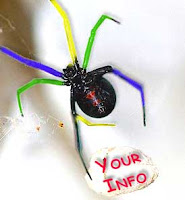The “Millennials” The Disconnected Connected
 The "Millennials" are marked by an unnoticed plague. Social media is this generation's ignored toxic habit adversely affecting their social and mental health, just as smoking was in the '60s to our bodies.
The "Millennials" are marked by an unnoticed plague. Social media is this generation's ignored toxic habit adversely affecting their social and mental health, just as smoking was in the '60s to our bodies. We can all observe this generation's dependence on mobile communication. We think of it lightly and only see its disruption's surface. In fact, we are often outraged by this singular consumption that occupies our youth's myopic attention and focus. We know the peril of the experiences they are missing for being unaware of their surroundings as they have their heads buried in a dimension that makes an abstraction of the here and now. This lack of awareness is weakening their ability to learn the patterns associated with the movement of life itself and detect the opportunities and threats that lurk around them. How many fall while texting? How many can't recall the landmarks from home to school? How many feel helpless recollecting basic knowledge they can't reference on their smartphone? Have you seen a young police officer texting instead of looking at the traffic patterns? — Ok, that one might be useful. I recently witnessed a flight attendant, about 25 years old, so consumed by texting that she was not responsive to her duty to open the doors despite being summoned over the PA. These are only a few first-degree examples and observations. But what about the ramifications of these behaviors?
What happens when a child has unfiltered communication with its peers? What happens to the mind's ability to memorize and learn when instant gratification occurs when seeking information on Google? What happens to parenting when parents tolerate their children's subterranean life as an excuse to find relief from their busy schedules? Technology only accelerates time and space in our physical and social reality. It is far easier to measure technology's disruption in the physical world.
In contrast, the social ecosystem is far more complex because it is an arbitrary reality that we accept according to beliefs, protocols, socio-economic pressures, and the search for a relatively happy life. Like our planet, our social system and its mechanisms have evolved. Our need to establish a social protocol through rituals to collectively transcend our ephemeral individual existence is the primary and most common driver for the growth of humanity. We have created methods and disciplines around our ability to co-exist, find peace, and trade — I would postulate that religion is an early social tool designed for governance as humanity expands. But what happens when we accelerate and fragment the tapestry of what connects us?
A simple example is the practice of politeness as a necessary tool to facilitate a possible trait through mutual respect. Isn't it interesting that the more we feel autonomous and fulfilled, the less we observe polite behaviors? Have you noticed that often young Millennial adults are rarely polite and have a strong sense of entitlement? Are we surprised, or do the parents amongst us feel a sense of responsibility? Have we bought tranquility by purchasing mobile phones and video games and praising their mediocre accomplishments? We knew better as parents, and we simply allowed this to occur as so many of our parents allowed a great deal of us to watch television as the alternative babysitter. No one is innocent. The fact is that the fast adoption of technology occurs without consideration for its social and mental health impact. Technology's acceleration of communication is, of course, a disruptor and will force change. We know enough about the adverse implications that technology brought when we crossed the Atlantic, invented the phone, and exposed our beliefs and lifestyle through television to cultures that exercise control in areas where we have freedom. Yes, people are threatened by change because change worries us. It is unavoidable, and our respective social models are designed for self-preservation. But here is the real issue. The more we isolate ourselves and surrender to providers, the less we understand what it takes to evolve and survive. We are being distracted and fulfilled by the seductive value proposition of unfiltered communication and creating silos of social media friends that look like us. The result is that we are building a false certainty of ourselves and the world. The system narrows our view of those like us, diminishing our ability to grow, create, and find opportunities from differences. Humanity only evolves through necessities. Remove it, then certitude and provisioned comfort will simply atrophy our ability to make decisions and, ultimately, survive.
Having all the information at our fingertips when the same system further isolates and atrophies us is the paradox that cripples our awareness of the risk ahead. When knowledge is not needed, and when we are content with the way things are, we will stop to evolve. Generation X owns some responsibility for indulging and turning a blind eye for the sake of convenience. The outcome is palpable when we try to educate and challenge our youth. We are disliked and rejected for not being a BFF and the unconditional provider they see us as. Many Generation X parents and employers simply resign themselves by looking for ways to reach the Millennials on their terms. In doing so, we sink them further into the certitude of dysfunction. We need to buckle up and bring real discomfort to the Millennials because necessity is necessary for humanity to move forward.


Comments